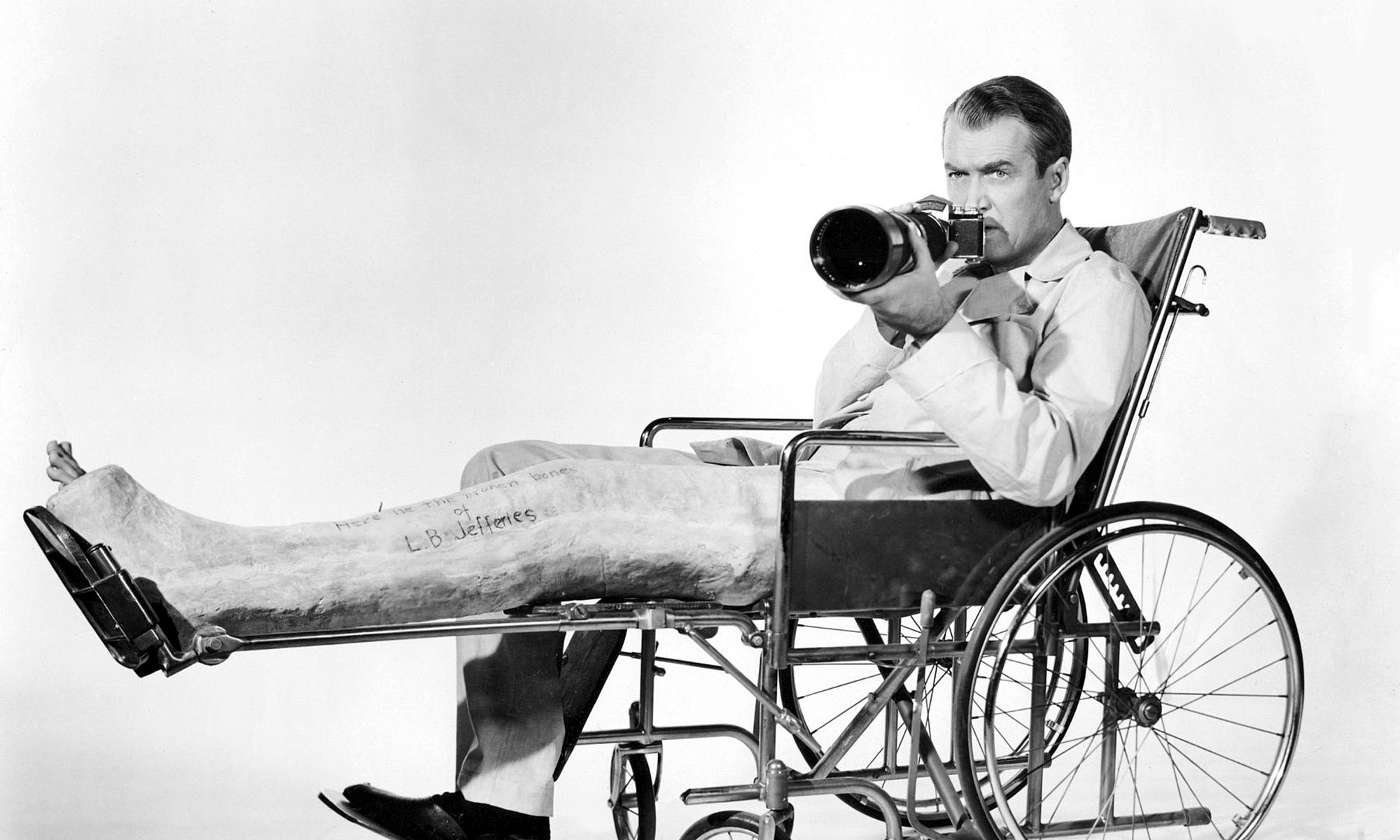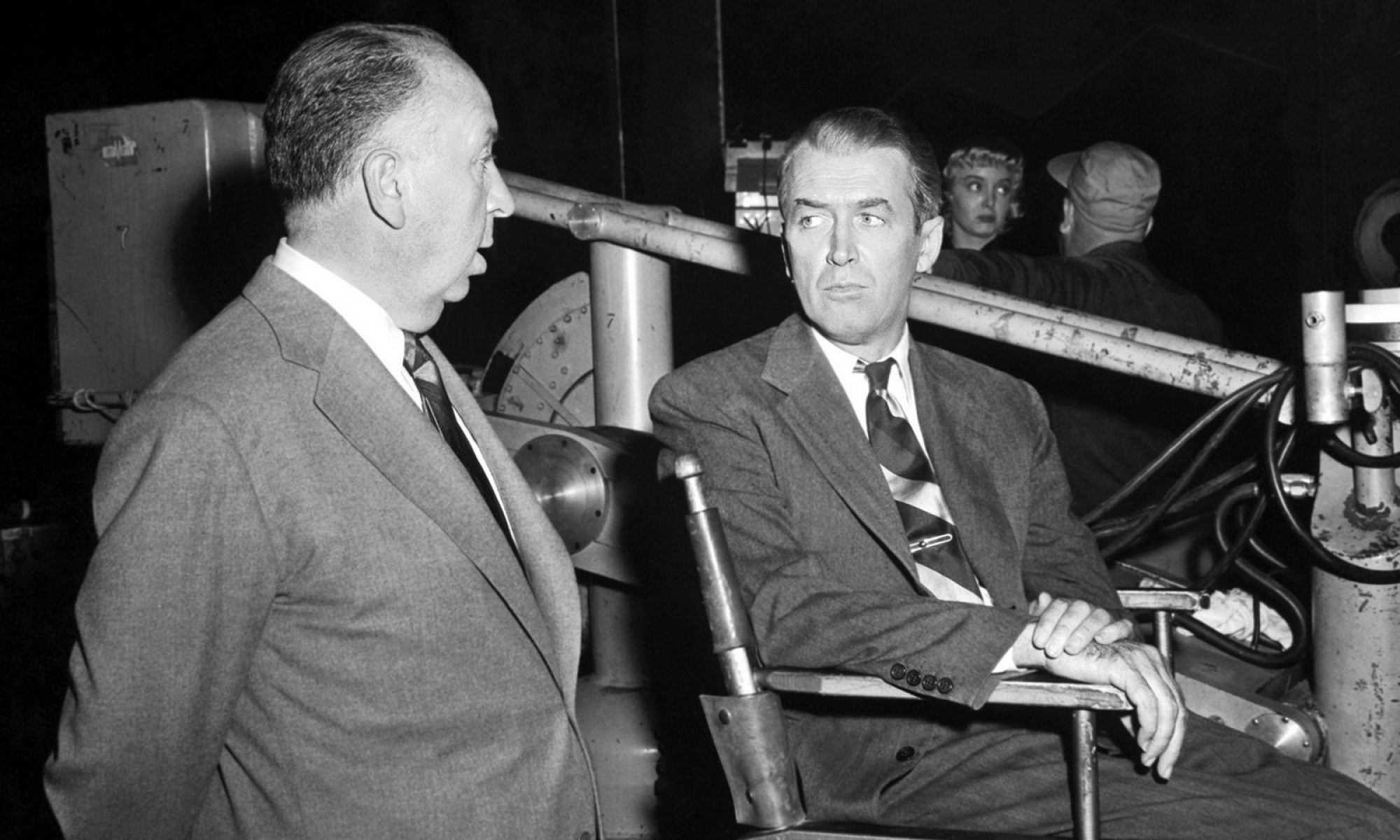Early Life:
James Maitland Stewart was born on May 20, 1908 in the small town of Indiana, Pennsylvania. His parents, Elizabeth and Alexander Stewart, were of Irish and Scottish descent and both church-going Presbyterians. His father ran a successful hardware store and was a well-known and respected citizen in town. He instilled in his son a sense of hard work, frugality and responsibility. From his mother, who was an excellent pianist, Stewart inherited artistic talent, as did both his younger sisters, Mary and Virginia.
Stewart had two childhood passions that would later help define his life: performing and aviation. As a boy, he learned to play the accordion, and put on plays at home and at school. He also spent many hours building model airplanes and dreaming of becoming a pilot.
When he was 15, Stewart attended the all-boys prep school, Mercersburg Academy. After graduating in 1928, he enrolled in Princeton University, his father’s alma mater, where he studied towards a degree in architecture. Although he excelled in the subject, he was drawn to the college’s drama and musical activities. His accordion skills earned him an entrance into Princeton’s Triangle Club where he met future director/producer, Josh Logan. Stewart soon moved from playing the accordion to playing leading roles in musicals.
After graduating in 1932, Stewart accepted an invitation from Logan to join a summer stock company, the University Players, on Cape Cod, where he met Henry Fonda with whom he became lifelong friends. That same year they both moved to New York City, rooming together and trying to make a living on the stage.
In 1934, Stewart won his first major role on Broadway in the play, Yellow Jack. The performance earned him a screen test with MGM, and the next year, Stewart moved to Hollywood with a contract from the studio. Again, he and Fonda, who had already moved to Hollywood, shared a place to live.

Early Film Career:
Stewart made his feature debut in 1935 in Murder Man starring Spencer Tracy. During the next five years he made over two dozen films. It was at this time that his screen persona was forged: the modest, small town hero, diffident but strong; nave and idealistic; awkward and unsophisticated, but somehow still charming and debonair. Thanks to his droll sense of humor and impeccable timing, Stewart shone in both comedic and dramatic scenes.
Between 1935 and 1940, Stewart made some of his best films, including: Frank Capra’s Mr. Smith Goes to Washington, the film that made Stewart a star and won him an Academy Award nomination, and Philadelphia Story for which he won an Oscar for best actor.
During these early years in Hollywood, Stewart did not forget his passion for flying. He earned a pilot’s license, bought his first airplane, and in 1938 got his commercial pilot’s license. His aviation skills prepared him for the war.

The War:
Stewart was drafted in 1940, but was turned down for being 10 pounds under weight. He fattened himself up, enlisted in the Army Air Corps and was inducted in 1941 at the age of 32. To his frustration, he was kept stateside for two years, training pilots and making promotional films despite his requests for an overseas posting. Finally, in 1943, he was sent to England as a captain with the Eighth Air Force.
Stewart eventually led at least 20 bombing missions over Germany, flying B-24s as command pilot, wing commander, or squadron commander. He earned numerous military decorations, including: the Distinguished Flying Cross with two Oak Leaf Clusters, The Air Medal with three Oak Leaf Clusters, and the French Croix de Guerre with Palm.
By the end of the war, Stewart had risen to the rank of colonel, and came home a hero. He remained in the Air Force Reserve and, in 1959, was promoted to brigadier general, making him the highest-ranking entertainer in the American military. He retired from the Air Force Reserve in 1968, when he was awarded the Distinguished Service Medal.
Post-War Career:
Jimmy Stewart returned to Hollywood in 1945. He did not renew his contract with MGM, but signed up instead with the talent agency, MCA. His first film after the war was It’s a Wonderful Life, directed by Frank Capra. Though it was not a commercial success at the time, the film garnered Stewart his third Academy Award nomination and has since become an American classic. It is widely considered to be one of Stewart’s best performances.
In Stewart’s post-war career, he portrayed characters more subtle and complicated than previously: troubled, questioning heroes, torn between strength and vulnerability, conviction, and doubts. No one does tortured inner conflict better than Jimmy Stewart.
Stewart’s career soared during the 1950s. The decade began with Harvey, for which he received his fourth Oscar nomination. Later, in 1970, he did the play On Broadway (which he had done briefly in 47), playing opposite Helen Hayes, and in 1975, he revived it in London.
His work during the 50s was defined by collaboration with two directors. One was Anthony Mann with whom Stewart made eight films, including the highly successful western, Winchester 73. This film was a milestone in Hollywood history because Stewart’s agent, Lew Wasserman, made a deal with Universal Studios in which the actor was paid royalties rather than a flat salary. This set a precedent that heralded the end of an already failing studio system in which the big studios controlled the careers of the actors they had under contract.
The second director who greatly influenced Stewart’s post-war career was Alfred Hitchcock with whom the actor made four films, including the classics, Rear Window and Vertigo.
In 1959, Stewart earned his last Academy Award nomination for Anatomy of a Murder. The ‘60s and ‘70s saw several successful movies, including: the John Ford westerns, Two Rode Together, and The Man Who Shot Liberty Valance. Stewart also branched out into television. He starred in the NBC comedy, The Jimmy Stewart Show, and the CBS mystery series, Hawkins, for which he won a Golden Globe. During the ‘70s and ‘80s, he made periodic appearances on Johnny Carson’s The Tonight Show, often reading poems he had written at various times during his life. In 1989, Stewart published his first and only book, a compilation of his poems, entitled Jimmy Stewart and his Poems.
In his later years, Stewart spent much of his time accepting awards, including an honorary Oscar for lifetime achievement in 1984, and the Presidential Medal of Freedom in 1985, the highest civilian honor in America. His last film role was in 1991, as the voice of Sheriff Wylie Burp in the animated film, An American Tale: Fievel Goes West.
Personal Life:
On August 9, 1949, Jimmy Stewart married 31-year old Gloria Hatrick, who had two young sons from a previous marriage, Ronald (then 5) and Michael (then 3) McLean. On May 7, 1951, twin daughters, Kelly and Judy, were born to the Stewarts. Gloria and Jimmy were married for 45 years until Gloria’s death from lung cancer in 1994. They lived in the same house in Beverly Hills throughout their marriage. During the ‘50s, he and Gloria made several appearances together on the Jack Benny Show where Gloria’s sense of comic timing was evident, as was the fun they both had together. None of their children went into show business. In 1969, stepson Ronald, a 2nd Lt. in the Marines, was killed in Vietnam.
From the 1960s onwards, Stewart took up Gloria’s passion for animals and wildlife. They traveled frequently to Africa on wildlife photographic safaris, often with their children. They gave their support to numerous animal and wildlife charities. The Stewarts were also big supporters of education, and of St. John’s Hospital in Santa Monica, raising money with the Jimmy Stewart Relay Marathon, co-hosted with Robert Wagner, an event that ran annually for more than 20 years.
Other causes occasionally took Stewart to Washington. As a well-known conservative Republican, he was very marginally involved in politics through his support of the Republican Party, most notably by campaigning for Ronald Reagan. In 1988, Stewart became active in the fight against the colorization of classic black and white films, making an impassioned plea in Congressional hearings on the issue.
In 1994, after Gloria died, James Stewart appeared very rarely in public. He died of a pulmonary embolism on July 2, 1997. He was 89 years old.




